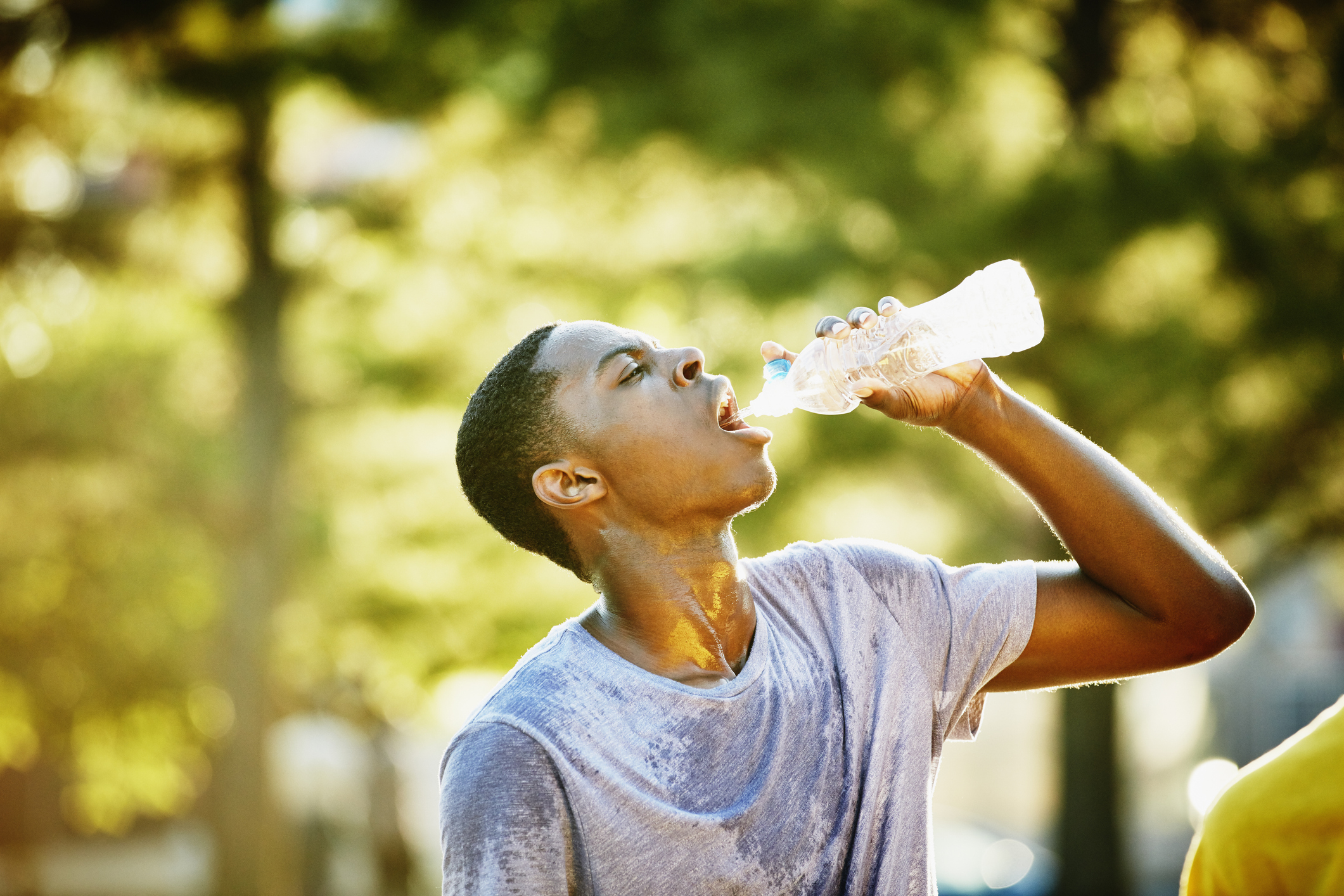By Nicole Young, Vitals contributor
Did you know dehydration caused by summer heat puts you at a higher risk for kidney stones? Dr. Ron Golan, urologist at Sansum Clinic, now part of Sutter Health, explains that an excessive loss of fluids is thought to be the primary cause of these painful mineral deposits.
“Kidney stones form more often in warmer months. Dehydration leads to increased saturation of minerals and salts within the urine that can lead to the crystallization and subsequent growth of stones,” Golan reports.
Here are some of Dr. Golan’s tips to prevent the formation of pain-inducing kidney stones:
Quench Your Thirst
Water is the #1 choice to prevent kidney stone formation. Sparkling or fruit-infused waters are the next best option, along with calcium-fortified orange juice (with reduced sugar). While sugary drinks are best avoided, there is evidence that clear sodas, lemonade or drinks with lemon juice contain citrate which can help prevent kidney stones. Dark colas or large quantities of tea may further increase kidney stone risk.
Consuming more fruits and vegetables will help to increase fluid in your body, and may also provide the body with more citrate, a key component in stone prevention.
Sweating It Out
Exercises performed in the heat such as running, beach volleyball or hot yoga may lead to excessive fluid losses. While good for your health, they can lead to concentration of stone-producing minerals in the urine which results in crystallization and stone formation. Being vigilant about your fluid intake can help counteract these losses.
Calcium Counts
Most kidney stones in the United States are comprised of calcium oxalate. Unbalanced quantities of either component, though especially oxalates, can increase the risk of stone formation. Normally calcium binds to oxalate in the gut and is excreted. With too much oxalate, or too little calcium, the risk of crystallization of the oxalate increases and can result in the creation of stones.
Summer diets may include less calcium than other times of the year. Consuming adequate but not excessive calcium-containing food and drink such as dairy products, calcium-fortified foods or calcium-rich produce is preferable to supplementation, unless medically warranted.
Too much oxalate can also raise your risk for calcium oxalate stones. Spinach, chocolate, nuts, potatoes and beets all have high quantities of oxalate. While challenging to avoid entirely, the goal is to reduce, and balance intake with adequate dietary calcium.
Attention to Symptoms
Unfortunately, most people with kidney stones do not always get advance warning. Sudden onset of back pain, abdominal pain, groin pain, or difficulty urinating can all be symptoms of kidney stones. Other times, it could be blood in the urine, or persistent nausea and vomiting. In those cases, it is wise to seek medical attention.
Passing Kidney Stones
Some kidney stones may pass through the urinary tract on their own. Drinking plenty of liquids can aid that process. Larger kidney stones, ones which block the urinary tract, or those that cause unmanageable pain may need more urgent attention. Doctors often use imaging to evaluate the size, location and characteristics of stones.
In the event that treatment of a stone is warranted, there are a number of available options that may be considered depending upon patient-related and stone characteristics.
- There are off-label medications that may facilitate stone passage.
- Extracorporeal shockwave lithotripsy (ESWL) is a non-invasive treatment that uses targeted sound waves to break the stone into passable fragments.
- Ureteroscopy (URS) involves a small camera passed into the urinary tract to visualize the stone and then fragment it with a laser and/or extract it.
- Percutaneous nephrolithotomy (PCNL) is often used for larger or more complex kidney stones.
Note: This content is not intended to be a substitute for professional medical advice, diagnosis or treatment. Always seek the advice of your physician or other qualified health provider with any questions you may have regarding a medical condition. Never disregard professional medical advice or delay in seeking it because of something you have read on this website.





